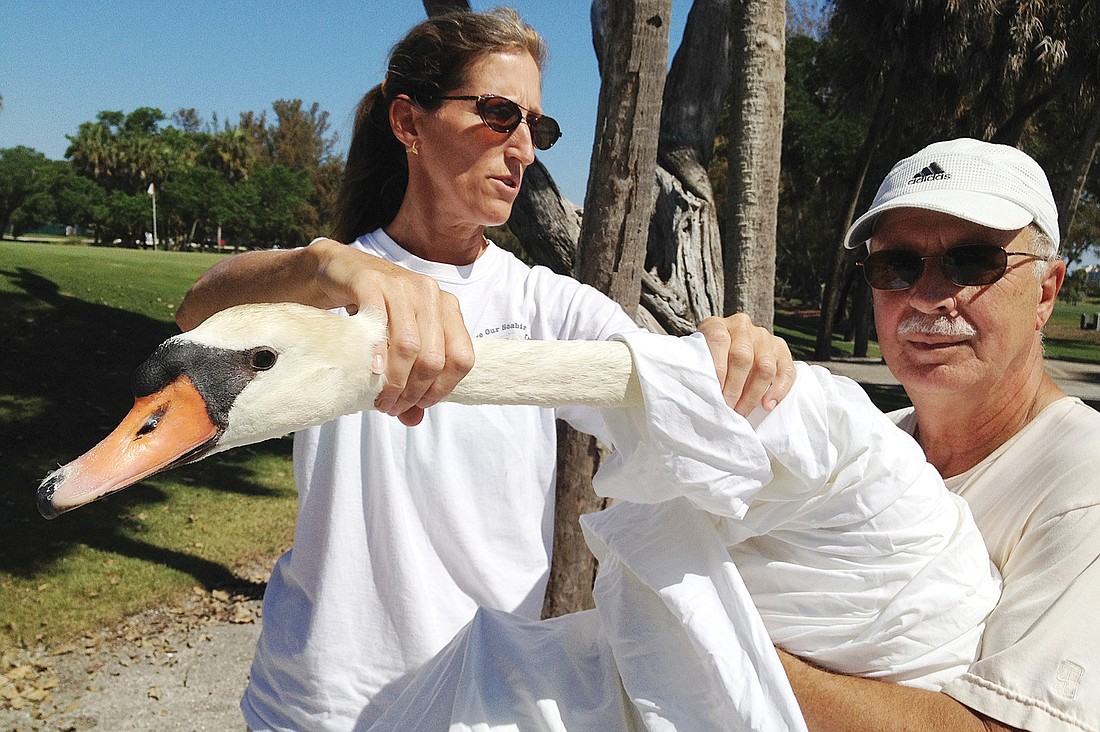- April 25, 2024
-
-
Loading

Loading

It was just two years ago that Vickie the swan and her mate, Henry, produced seven cygnets swimming in a pond along the Bay Isles Parkway.
“People were stopping their cars and there were crowds of photographers,” David Novak, resident at Harbor Links and swankeeper says.
But this season, Novak noticed Vickie for a different reason — she was showing signs of distress. For one, she wasn’t making a nest.
And while in the water, Vickie had abandoned her graceful swan swim, replacing it with an awkward doggie-paddle and indecisively shaking her tail.
“I watched this for a week, and it wasn’t getting any better,” Novak says.
On April 3, Novak called Save Our Seabirds. Cynthia Schneier, Cyndi Seamon and Novak gently captured Vickie and took her to the bird-rescue facility, where she was put in intensive care and given antibiotics and fluids.
“She has calmed down quite a bit,” said Lee Fox, executive director of Save Our Seabirds, Monday.
Fox believes Vickie had an intestinal or kidney infection. Since taking fluids and having antibiotics, Vickie has started eating well, preening and taking care of herself.
“They can’t talk to you, they can’t tell you where it hurts; we just go by the symptoms they have,” Fox says.
Novak says a security guard near Vickie’s territory has seen Henry wandering the area, supposedly looking for her. The group hopes to have Vickie reunited with Henry and in her own environment later this week.
Other breeding swan couples include the youngest pair, Wendy and Stan, who have about six eggs in their nest, and the oldest couple, Beverly and Alan, who also have about six. Novak expects the eggs to hatch around April 20 to April 25. It takes 35 days of nest-sitting by the females before cygnets hatch.